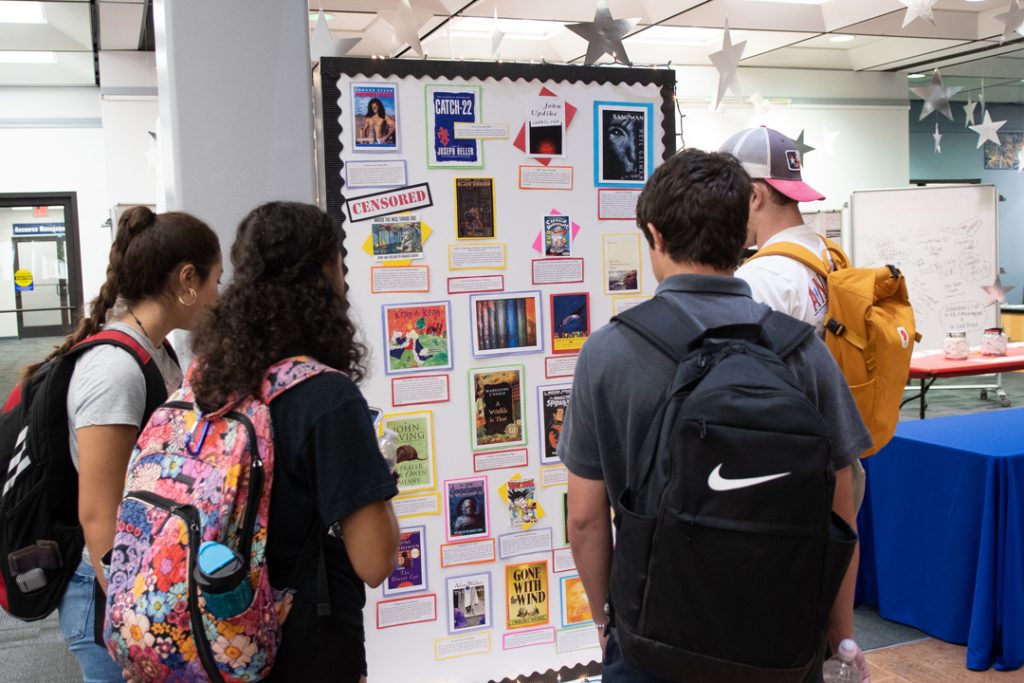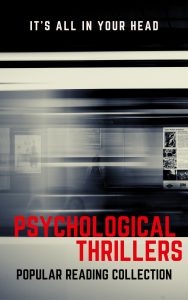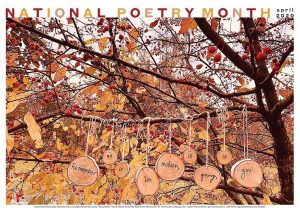Happy Almost-Banned Books Week, everybody! We at Bell Library love a themed celebration, and Banned Books Week is particularly near and dear to our hearts as it celebrates everyone’s right to read. Specifically, everyone’s right to read whatever books they like.
Books are regularly “challenged” in school libraries and public libraries. A challenge is when someone complains that a book is available and demands it be removed. If they succeed, the book has been “banned.” Usually, folks try to ban books because they believe it has some content that will be harmful to children. Challenging and removing books like this is one form of censorship—preventing someone from making the materials available.
It’s a really good example of censorship because it connects to our emotions pretty easily. Books many of us loved, like Harry Potter (banned for witchcraft), The Great Gatsby (language and sex), and To Kill a Mockingbird (depictions of racism), have all been banned and are still regularly challenged. Thinking about banning these books, some of which we love and some of which we had to read in high school or college, can make us really emotional! We might be angry that someone thinks you don’t have the ability to discern fact from fiction, sad that someone is preventing others from reading a book you love, or confused because isn’t the whole point of To Kill a Mockingbird the depiction of racism?

But there’s another kind of censorship I’d like to talk about in this point, that makes me just as angry and sad and confused: censoring information.
Censorship can absolutely look like an angry parent demanding that Catcher in the Rye be removed from the high school’s library. But it can also look like not showing all sides of a story. It can look like workplace harassment claims being shoved into a file in HR and never being addressed. It can look like shaming another researcher whose work contradicts yours and pulling strings to get their research redacted from a journal or website.
This kind of censorship is a way of controlling people—the way they behave and think. When we limit the information people have access to, they can’t make an informed decision about what’s best for them.
If, for example, Google had been open about the harassment employees reported, people would have had more information and may have chosen to not work for Google. Or, public outcry might have made Google change their practices earlier. Google didn’t want people to know about those harassment claims, so that they wouldn’t have to change their behavior. Now that we, the public, know about it, we can demand action.
Or think about a historical example—in 1918 when what we now call the “Spanish Flu” broke out, the newspapers were all told to not to report on it. The US and the Allied Powers were in World War 1 then, and didn’t want the Central Powers to know that their soldiers might be sick and vulnerable. This might have helped the military, but it meant that the flu spread quickly and folks did not know to take preventative measures early on.
These are examples that are pretty easy to feel detached from, since they’re either long ago or in a big company that we don’t necessarily have to work for. But think when your iPhone breaks. Apple, the maker of iPhones, has gone to a LOT of trouble to make it really really difficult to repair an iPhone or a Mac laptop by yourself. Their goal is to get you to spend a lot of money either buying a new device or repairing your broken phone or laptop. You could choose to repair it yourself if Apple made the information easily available or make tool kits for the purpose. Apple has intentionally censored that information from being released though, so we’re stuck making an expensive decision.
So next week, think about the books you love and about who you’d like to share those stories with. But also think about the information we can share. Do you know how to repair iPhones? Do you know someone who needs reliable information about vaccines and masks? Do you see a news story that has left out an important perspective? Keep these things in mind and think about what you can do to fill the world with accurate and accessible information.
Emily Metcalf
Instructional Services Librarian


